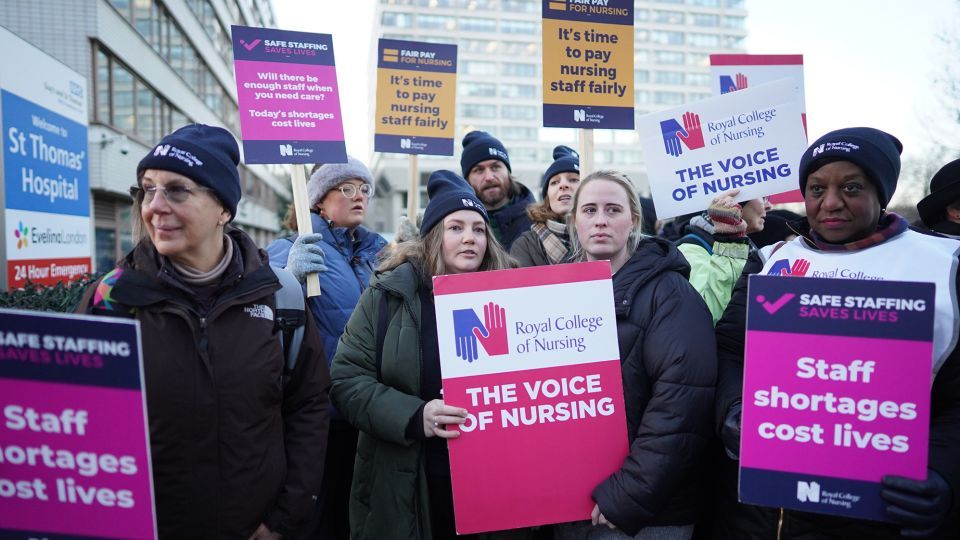Nurses Hold Biggest Strike in NHS History
Thousands of UK National Health Service (NHS) nurses in England, Wales, and Northern Ireland on Thursday held the first of two day-long walkouts, with the Royal College of Nursing (RCN) demanding a 19% pay raise and for the record number of staff vacancies to be filled.

Facts
- Thousands of UK National Health Service (NHS) nurses in England, Wales, and Northern Ireland on Thursday held the first of two day-long walkouts, with the Royal College of Nursing (RCN) demanding a 19% pay raise and for the record number of staff vacancies to be filled.
- Calls for a 19% pay bump — 5% above retail inflation — come after, when adjusted for inflation, nurses' pay dropped 1.2% every year between 2010 and 2017, according to the Health Foundation charity. For the first three of those years, their pay was frozen. Last year, their pay was increased 3%, though this is well below inflation.
- Up to 100k nurses are estimated to join the strikes, each day of which will last for 12 hours. The RCN said the areas that will be "exempt from the strike action" include chemotherapy, dialysis, pediatric A&E, intensive care and high dependency, and neonatal and pediatric intensive care.
- The services likely to be most impacted include routine operations, such as knee and hip replacements, with health minister Maria Caulfield saying roughly 70k procedures in England will be delayed and thousands more in Northern Ireland and Wales.
- While Sec. of Health Steve Barclay claims the pay rise is "not affordable," he said he's willing to discuss "a wide range of issues" outside of pay. Nevertheless, the strikes may worsen. Ambulance workers are set to strike next week and the nurse union is mandating strikes through May. Junior doctors are also likely to join by February.
- Another union, the GMB in Scotland, also voted Wednesday to reject an improved NHS pay deal from the Scottish government. The next nurse walkout is scheduled for Dec. 20.
Sources: BBC News, CNN, Newsbud, Daily Mail, and Times.
Narratives
- Right narrative, as provided by Telegraph. This is highly reminiscent of the strikes of 1979, which saw much of the country brought to a standstill. The only difference is Margaret Thatcher was elected that year to quash the union dominance and restore order. Though the pay concerns of nurses are understandable, a minimum level of service must be maintained when it comes to essential sectors. Sunak needs to put his foot down.
- Left narrative, as provided by Guardian. If Sunak sees himself as the successor to Margaret Thatcher, he should be reminded that she agreed to a 25% pay raise with trade unions in 1979. While private sector pay has grown 7% annually, public sector workers like nurses have received a dismal 2% average, dangerously below the inflation rate. Thatcher was a realist who understood the impact the public sector has on the wider economy, and Sunak should realize the same.






